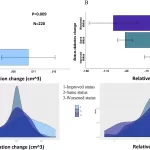A new study has found that Covid-19 infection can significantly increase the risk of developing dyslipidemia, or high cholesterol, by nearly 30 percent. Conducted by researchers from Albert Einstein College of Medicine, the study observed more than 200,000 adults and highlights a concerning link between SARS-CoV-2 infection and abnormal blood lipid levels, which could contribute to the rising rates of cardiovascular diseases post-pandemic.
Published in the Journal of Clinical Investigation, the study sheds light on the long-term health consequences of Covid-19. Dyslipidemia, characterized by elevated levels of lipids (fats) in the blood, is a major contributor to cardiovascular issues such as heart attacks and strokes. The study indicates that older adults and individuals with type 2 diabetes are at an even higher risk, with these groups experiencing a near two-fold increase in the likelihood of developing dyslipidemia after Covid infection.
Dr. Gaetano Santulli, Associate Professor of Medicine and Molecular Pharmacology at Albert Einstein College of Medicine, explained that SARS-CoV-2 can impair the function of endothelial cells, which line blood vessels and play a crucial role in lipid regulation. “This endothelial disruption appears to be a key factor in the increased lipid abnormalities observed post-Covid,” said Dr. Santulli. He urged individuals, particularly those with high cholesterol, to monitor their lipid levels regularly and to seek early treatment if necessary.
Dr. Santulli emphasized that even people without a formal Covid-19 diagnosis could be at risk, noting that many may have been infected unknowingly. He recommended that adults remain vigilant about their cholesterol levels, given the widespread reach of the virus and the possibility of asymptomatic infection.
The study compared the incidence of dyslipidemia among adults in Naples, Italy, before and after the pandemic. Data from 2017 to 2019 were analyzed alongside data from 2020 to 2022, revealing a significant 29 percent rise in dyslipidemia risk among participants post-pandemic. The findings were particularly concerning for individuals over the age of 65 and those with pre-existing conditions, such as diabetes, obesity, cardiovascular disease, chronic obstructive pulmonary disease (COPD), and hypertension.
The research highlights a crucial aspect of the pandemic’s legacy—its potential long-term impact on global health. Cardiovascular diseases remain one of the leading causes of death worldwide, and the implications of post-Covid dyslipidemia may burden healthcare systems with an increased incidence of heart attacks and strokes in the years to come.
Dr. Santulli’s findings underline the importance of addressing lipid abnormalities in Covid survivors as part of post-pandemic healthcare strategies, as early diagnosis and intervention could help mitigate the cardiovascular risks associated with elevated cholesterol levels.











